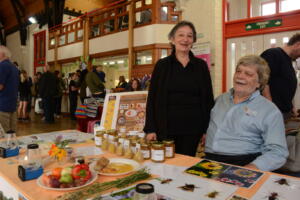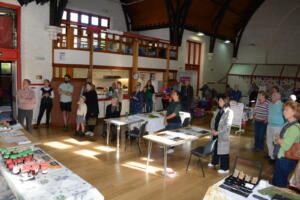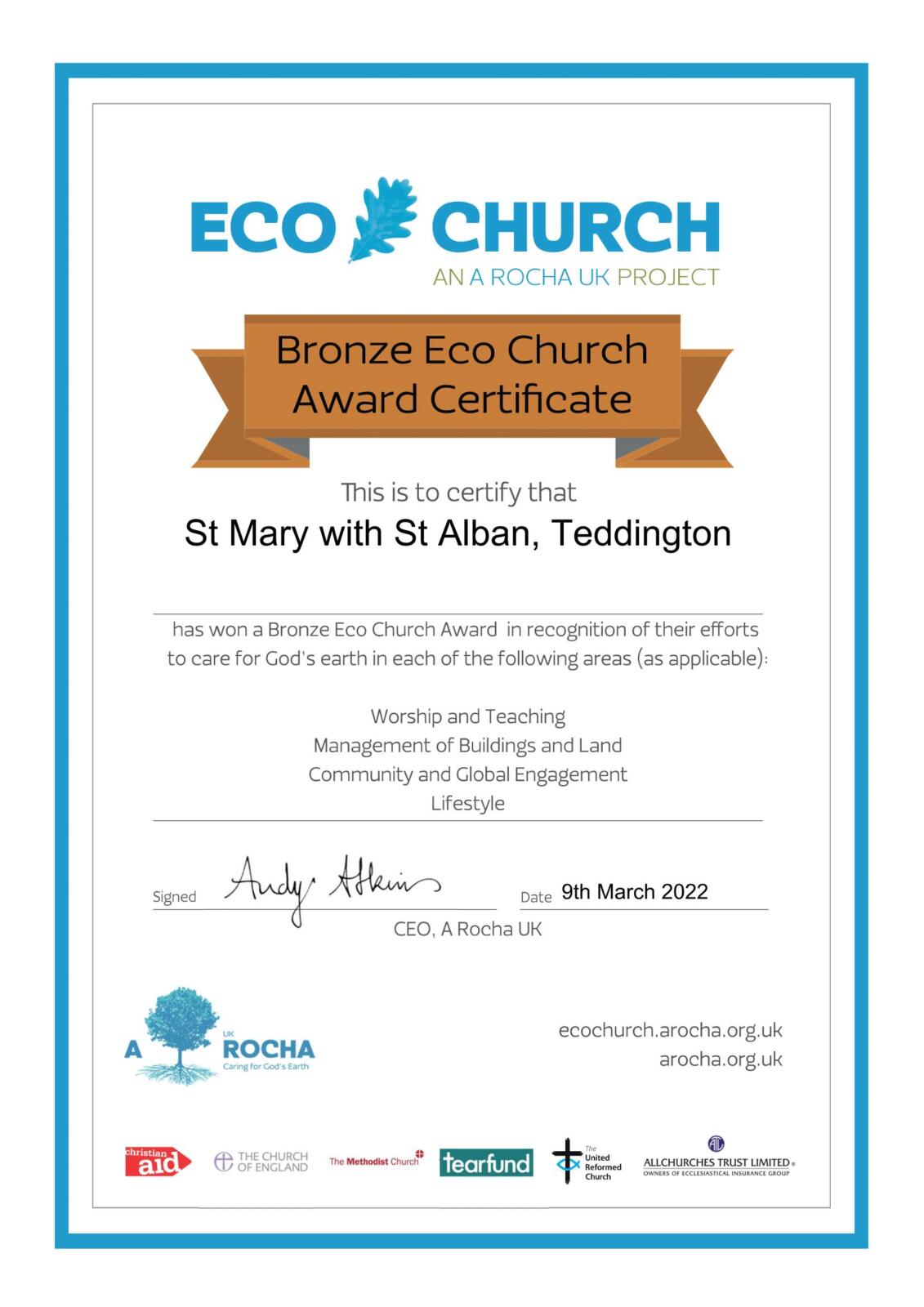On 24 September Teddington Parish hosted its first ever Sustainability Festival, “Living Your Sustainable Life.” The festival was opened by Munira Wilson MP, followed by a short talk by the Reverend Derek Winterburn on what we could all do to include sustainability and care for the environment in our lives.
 After the short talks, attendees were free to explore the range of exhibits, from Plain and Pearl, to the book swap, the Refill Larder, to our local beekeepers, Traidcraft Fairtrade stall, and several others. Margaret’s Jams were a particular hit, with a couple of resupplies needed to manage the demand! In addition, local architects presented a range of projects from home improvement to a multi-purpose entertainment space on the high-street, while the Twickenham Repair Café and Sheddington were both in attendance to discuss repairing and reusing goods.
After the short talks, attendees were free to explore the range of exhibits, from Plain and Pearl, to the book swap, the Refill Larder, to our local beekeepers, Traidcraft Fairtrade stall, and several others. Margaret’s Jams were a particular hit, with a couple of resupplies needed to manage the demand! In addition, local architects presented a range of projects from home improvement to a multi-purpose entertainment space on the high-street, while the Twickenham Repair Café and Sheddington were both in attendance to discuss repairing and reusing goods.
 Over the course of the day, a few hundred people came through the hall, with lots of positive conversations and ideas shared, many of which made it on the Green Wall, an idea and inspiration art project created by Iris Jones, our youngest volunteer.
Over the course of the day, a few hundred people came through the hall, with lots of positive conversations and ideas shared, many of which made it on the Green Wall, an idea and inspiration art project created by Iris Jones, our youngest volunteer.
The day was a huge success, and we are grateful for all involved in organising, exhibiting, and supporting the day. We look forward to next year’s festival being even bigger!


